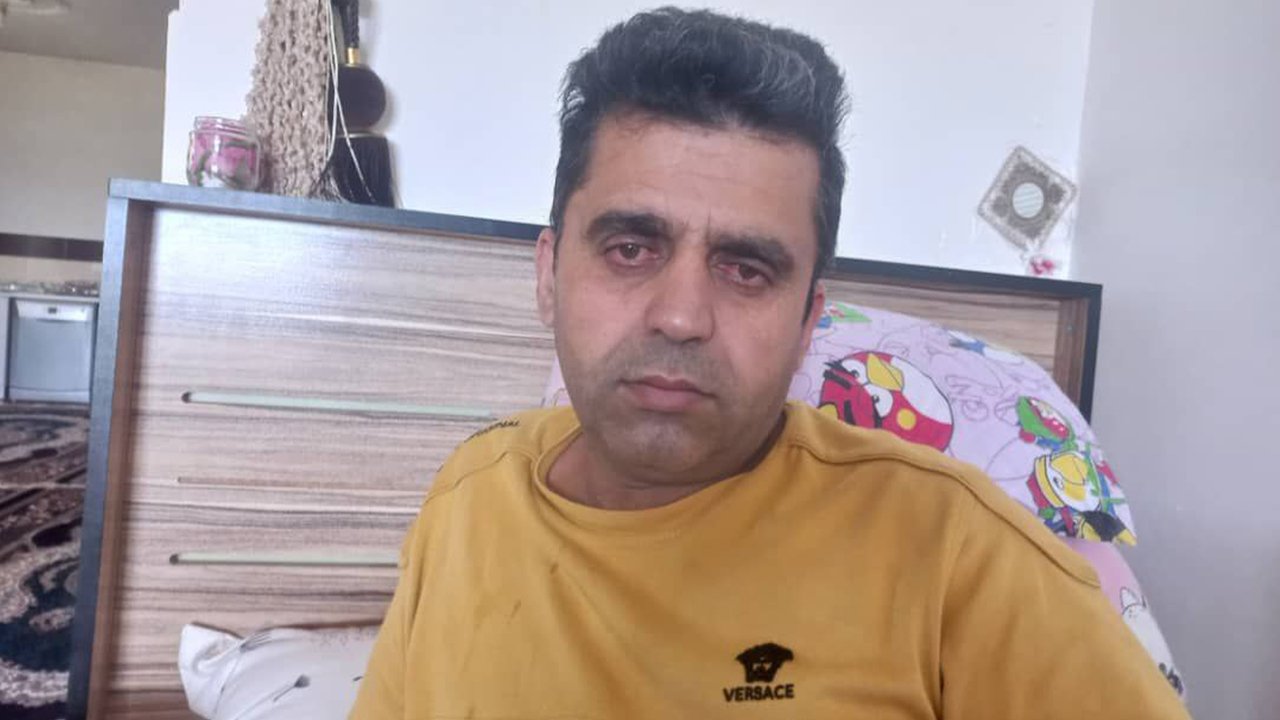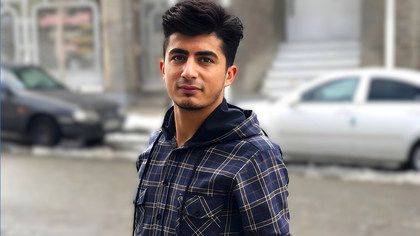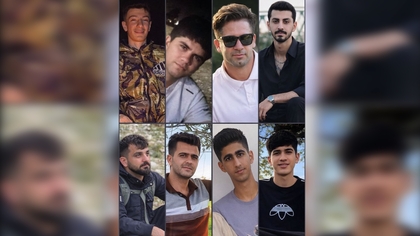Piranshahr: After 40 Days of Arbitrary Detention, Abdollah Azhir Suffers Severe Autoimmune Disease and Is in Critical Condition

On May 20, 2025, Abdollah Azhir, a young athlete and mountaineer from Sarvokani village, a district of Piranshahr County, developed a severe autoimmune disorder following his temporary release from a 40-day arbitrary detention at a security detention center in Urmia. The illness has led to progressive paralysis, neurological failure, and loss of key physical and cognitive abilities, including memory, speech, and vision. Despite extensive medical testing, physicians have so far been unable to make a definitive diagnosis or initiate effective treatment.
According to a source who spoke with Kurdpa, after his release on bail, Abdollah Azhir suffered from loss of mobility, vision, speech, balance, and memory. He is currently in critical and debilitating condition at his family home. He cannot stand or walk, has severe speech impairment, and his vision is severely compromised—his eyes are swollen, fixed in place, and non-responsive. He has also lost the ability to smile normally; his facial muscles are uncontrollably affected, and he shows disrupted facial expressions. His memory is gravely affected—he does not recall what happened to him or why he is ill. Overall, his neuromuscular coordination is shattered, and he suffers from extreme general weakness, loss of balance, and severe physical incapacity.
While doctors have not yet identified the exact cause of the disease, existing medical records clearly confirm a neurological and physical health crisis. Clinical notes mention severe muscular weakness, impaired vision, speech, balance, and nervous system responses, pointing to extensive neurological and motor system damage.
Medical Evidence: Diagnosis of Progressive Neurological Disease After Detention
1. Hospital Summary – Diagnosis: Myasthenia Gravis (MG)
- Final medical diagnosis: Myasthenia Gravis (MG) — a chronic autoimmune disorder that attacks neuromuscular junctions, affecting movement, swallowing, speech, vision, and even breathing.
- Clinical symptoms: Double vision, swallowing difficulties, neck muscle weakness, impaired facial expressions, memory issues, and cognitive decline.
- Treatments ordered: Prescription of Albumin and specialized tests including EMG-NCV (electrodiagnostic nerve/muscle tests).
2. EMG-NCS Findings (Electrodiagnostic Tests):
- Results indicate nerve conduction damage and impaired neuromuscular transmission.
- EMG readings show significantly reduced nerve conduction velocity (NCV) and diminished muscle responses in multiple body regions—consistent with Myasthenia Gravis or similar autoimmune neuropathies.
- Reports describe chronic muscular weakness, neuromuscular conduction failure in upper and lower limbs.
3. Albumin Prescription:
- Abdollah Azhir was prescribed Albumin, commonly used to treat severe immune crises, neurological shock, and autoimmune conditions such as MG or Guillain–Barré syndrome.
Unlawful Detention, Lack of Legal Counsel, and Ongoing Surveillance
Arbitrary Detention:
On April 14, 2025, Abdollah Azhir was arrested without a judicial warrant by Ministry of Intelligence forces and taken to a detention center in Urmia. His family and relatives received no information about his whereabouts, charges, or health throughout the detention.
40 Days of Disappearance and Denial of Rights:
During those 40 days, Azhir was denied access to a lawyer, visits, and even contact with family. This constitutes a clear case of arbitrary detention and enforced disappearance, prohibited under Article 9 of the ICCPR and UN standards for the treatment of detainees.
Security Pressure to Suppress Information:
According to informed sources, security agencies pressured the family and others not to publicize his arrest. As a result, his family was unable to seek help or support from human rights organizations during his detention.
Conditional Release Under Surveillance:
After 40 days, Abdollah Azhir was temporarily released on bail of 2 billion tomans, but immediately hospitalized due to his critical health. Even during hospitalization, security forces maintained active surveillance over him and his family. He reportedly remains under pressure from intelligence agencies.
Systemic Rights Violations: The Islamic Republic's Direct Responsibility
The case of Abdollah Azhir reveals multiple and severe human rights violations by the Islamic Republic:
- Arbitrary detention without due process.
- Complete lack of access to legal counsel or family.
- Medical collapse and neurological deterioration immediately following detention, strongly suggesting possible torture or mistreatment.
Given the documented health deterioration and supporting medical reports, the burden of proof lies with the detaining authority to explain the cause.
Furthermore, doctors’ failure to provide a clear diagnosis and the lack of access to impartial medical care violates Article 12 of the International Covenant on Economic, Social and Cultural Rights, which guarantees the right to the highest attainable standard of health.
Today, Abdollah Azhir—suffering from severe physical and cognitive disability—remains under surveillance and denied independent medical and legal support.
Arranged by: Evin Mostafizadeh



